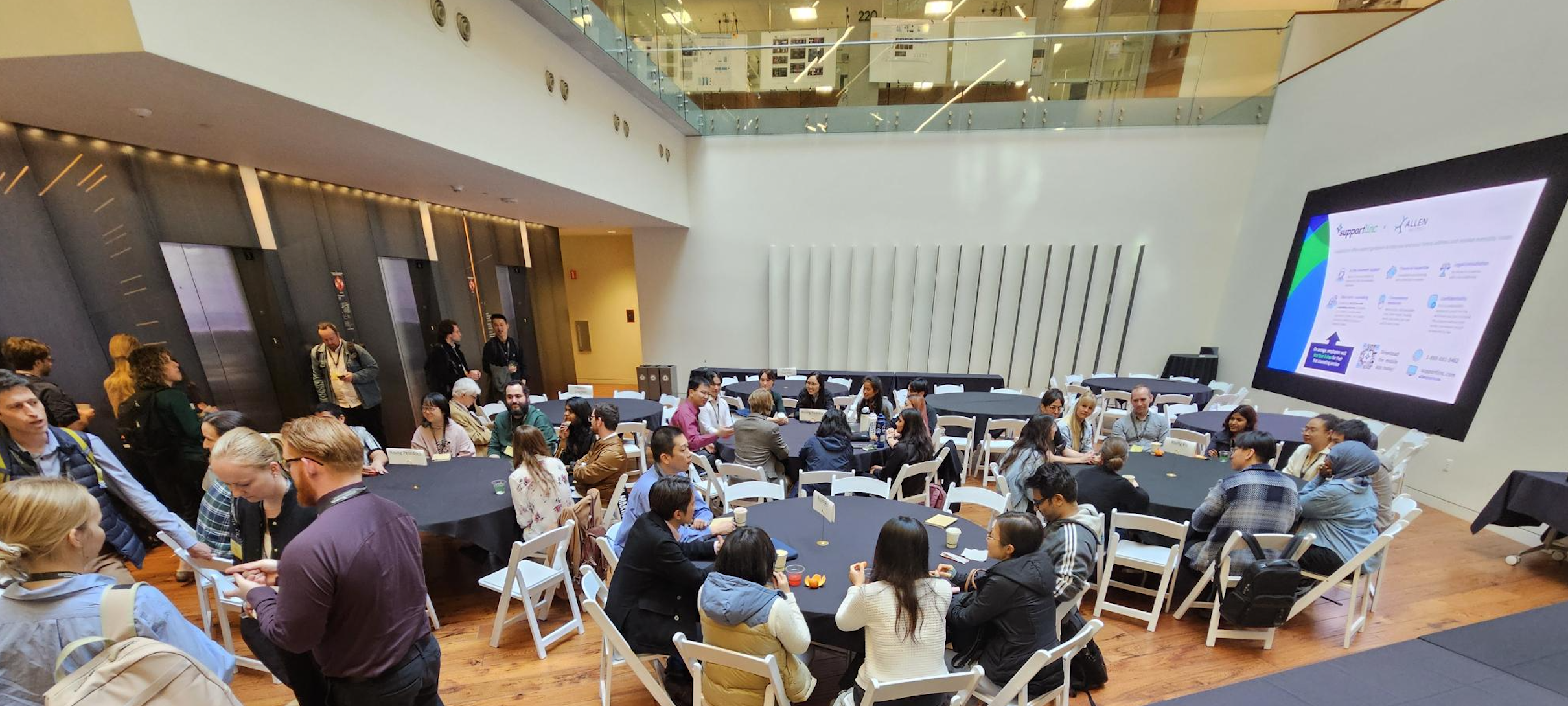New & Noteworthy: Upcoming Conference Highlights
At Keystone Symposia, our goal is to illuminate not just cutting-edge scientific discoveries, but also entire emerging fields at the forefront of biomedical science and medicine, such as regenerative cell therapies, artificial intelligence (AI) in biomedical research, and many more. These fields have groundbreaking potential to transform our understanding of human biology and disease mechanisms, paving the way for innovation in diagnosis, prevention, and treatment of disease. Each year, we dedicate a select number of conferences to these transformative biomedical topics, convening world leaders to chart the path forward for these exciting new research frontiers.
This year we have a unique line-up of emerging topic conferences that spans basic science to clinical medicine, in fields ranging from developmental biology to drug discovery. Explore new paradigms and expand your horizons with the meetings below, also available via Livestream and/or On Demand!
This conference explores cutting-edge innovations in stem cell-based embryo models (SCBEMs) and their design to study embryogenesis, implantation, organogenesis, and other critical aspects of early human development. The program will integrate advances in bioengineering, synthetic biology, and cell-instructive biomaterials, which are enabling the precise engineering of SCBEMs for both basic research and translational applications. Speakers will showcase how these powerful tools are enhancing capabilities in disease modeling, high-throughput drug screening, and regenerative and reproductive medicine. This meeting will convene the global research community in this rapidly evolving field to consolidate emerging frameworks and define the next frontier in stem cell and developmental biology.
February 2–5, 2026
Stromal cell biology investigates how fibroblasts and endothelial cells shape tissue development, function, and pathology through dynamic interactions with parenchymal and immune cells. This meeting will focus on stromal regulation of immune responses in homeostasis, infection, cancer, autoimmunity, and fibrosis, while highlighting innovative tools to study these processes in vivo. Attendees will gain new insights into how stromal cells influence immune function and tissue biology across diverse disease contexts, with built-in opportunities for networking and career development.
The program will also spotlight emerging therapeutic targets and the rapid rise of stromal-targeted therapies in clinical development. By bringing together researchers from academia, clinical practice, and the biotech industry, this meeting aims to break down silos, foster cross-disciplinary collaboration, and accelerate translational research.
Jointly held with the Keystone Symposia on Fibrosis: Cross Organ Pathology and Pathways to Clinical Development, this pairing will drive interdisciplinary discovery at the intersection of fibroblast biology, extracellular matrix biology, inflammation and immunity as it relates to chronic disease pathology. Attendees will get full access to both conferences for the price of one, maximizing learning and collaboration opportunities!
Chronic Kidney Disease (CKD) research has reached a pivotal moment, with new discoveries revealing convergent disease mechanisms that drive renal failure and link kidney disease to cardiovascular complications, including morbidity and mortality. The Keystone Symposia conference will accelerate progress by uniting global expertise in kidney biology, precision medicine, and therapeutic innovation.
The program will delve into kidney cellular architecture, deep tissue-level mapping, and emerging technologies that are advancing drug discovery and model system development. For the first time, CKD clinical trials will be leveraged as discovery platforms to define mechanisms of action in humans. Additionally, the conference will address the complex interplay of genetic, environmental, and social determinants contributing to kidney failure.
As a joint meeting with our longstanding conference on liver disease: Fueling MASH: Metabolic Drivers and Inflammatory Crosstalk, we will connect these two communities focused on renal and hepatic systems to foster cross-disciplinary insights and collaborations towards illuminating overlapping biological pathways, disease mechanisms and therapeutic strategies in these areas, particularly in relation to incretin-based therapeutics. Attendees will get full access to both meetings for the price of one, maximizing opportunities for learning and networking!
Membrane transport proteins regulate the movement of nutrients, ions, hormones, neurotransmitters, drugs, and toxins across cellular membranes, playing essential roles in cellular physiology and homeostasis. Solute Carrier (SLC) transporters represent the largest family of these proteins, yet they remain significantly underexplored as drug targets. Unlocking their therapeutic potential requires deeper insight into their biological functions, regulatory mechanisms, and structural dynamics, supported by advanced tools such as computational modeling, cryo-EM, and high-throughput screening technologies.
This conference will convene leading experts in SLC transporter pharmacology, physiology, and structural biology to advance understanding and foster a collaborative research community focused on leveraging SLCs for drug development, diagnostics, and precision medicine.
This symposium will explore the global health impact of large-scale, population-based genomic studies, emphasizing their role in uncovering genetic, lifestyle, and environmental drivers of disease across populations. It will highlight key scientific discoveries from longitudinal cohort research and underscore the importance of geographically and demographically broad study populations for advancing precision medicine and population health.
In addition to examining genomic variability, the program will showcase cutting-edge advances in leveraging data from wearable technologies, medical imaging, and blood-based biomarkers to predict, diagnose, and monitor disease. Discussions will also address challenges in data collection, curation, accessibility, and analysis of complex datasets, and how these efforts are being translated into improved disease prevention, early diagnosis, and personalized treatment strategies worldwide.
Drug discovery has traditionally relied on slow, trial-and-error experimentation, but today, computational approaches—including artificial intelligence (AI) and machine learning (ML)—are revolutionizing the field. These technologies enable large-scale molecular simulations and data-driven decision-making, allowing researchers to explore a vastly expanded set of potential interactions and outcomes at the atomistic, genomic, proteomic, and cellular levels. This dramatically improves the precision of drug design for specific disease contexts and individualized patient profiles.
This symposium will bring together leading experts in computational drug discovery, including compound and protein design, protein structure prediction, molecular interaction modeling, disease simulation, and predictive toxicology. Through cross-disciplinary presentations, speakers will demonstrate how advanced computational tools and machine learning algorithms are driving hypothesis generation, accelerating therapeutic development, and transforming the future of precision medicine.
Return to the September 2025 Keypoint Newsletter

Related news
Keypoint Newsletter: Fellows Community Updates & Call for Applications
By Heather Gerhart
Keystone Symposia’s flagship Fellows Program is now accepting applications for...
Insights from Sold-Out Interoception Conference: Scientific Breakthroughs, Community Highlights & Nobel Laureate Dr. David Julius
The brain-body connection was on full display at the April Keystone Symposia on interoception at...













